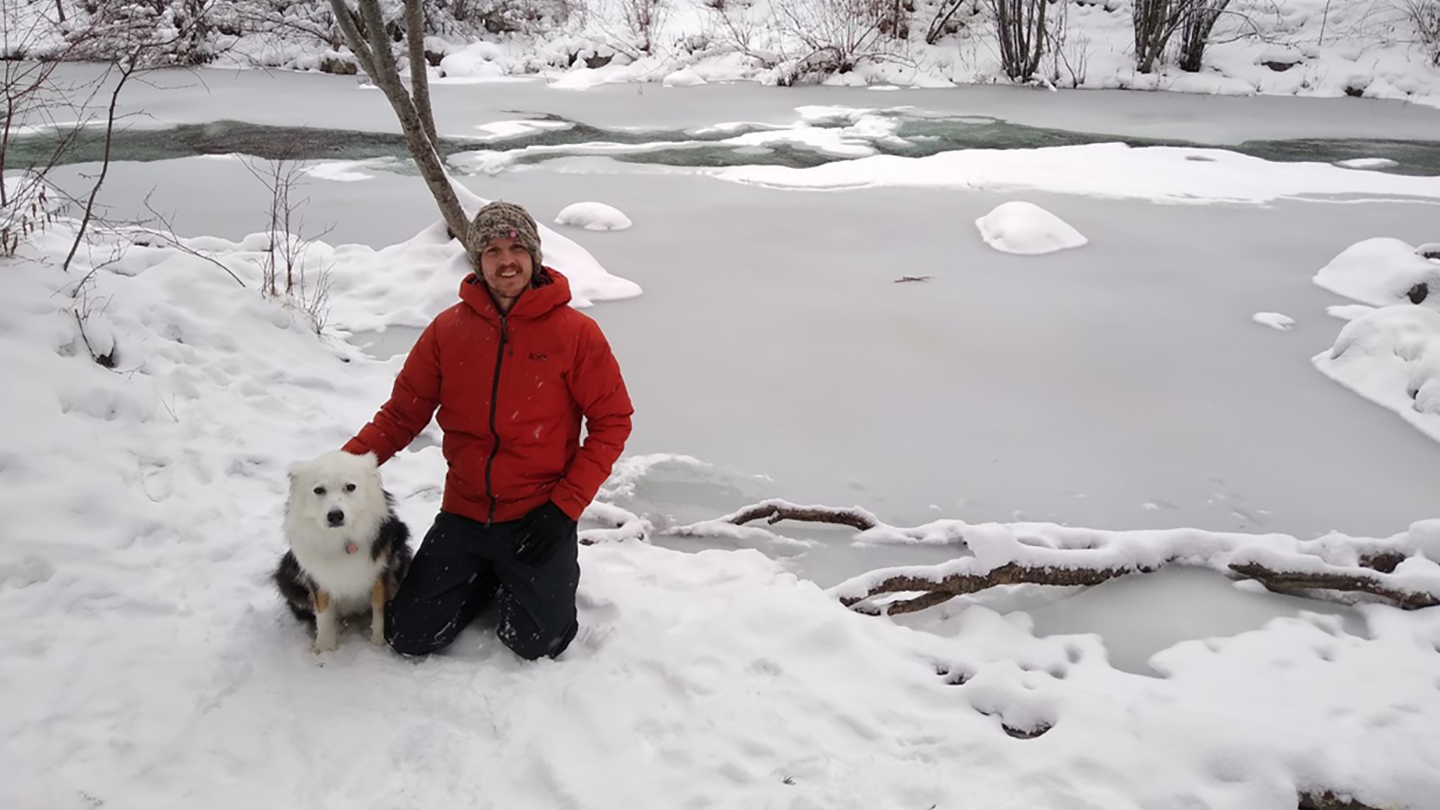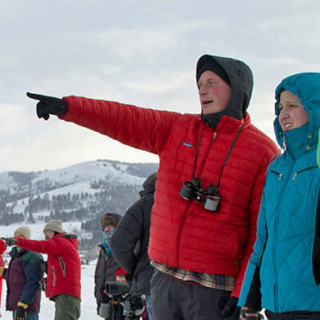Student Spotlight: Zachary Lauffenburger

In this episode, Zachary Lauffenburger (PhD, Geosciences) tells his story of growing into a deeper understanding of how the forces of the earth shaped the beauty of the Rocky Mountain west, where he grew up (Colorado) and where he studies (Montana). He details his work on simulating hydrologic processes to predict impacts of climate change on water availability for agriculture. That work allows him to bridge expertise at the University of Montana in his home department, but also computer science and mathematics.
STORY TRANSCRIPT
I grew up in Colorado at the foot of the Rocky Mountains, so I was always camping and hiking and fishing. When I realized that there was a lot more to learn about the natural environment than just going outside and being in it and the complexities of earth science and the history of Earth -- it all just was very fascinating to me because I could reflect back on all my early childhood experiences and the places that I went and the enjoyment that I had and have a deeper understanding of why that place was so special and how it evolved over time to the shape and the form that it is today.
My name is Zachary Lauffenburger and I am a Ph.D. student in the geosciences department. I study hydrology on a broad level and more specifically how climate change impacts water resources and agricultural production in the state.
So, I'm currently finishing one aspect of my Ph.D. research, which used computer models to simulate hydrologic processes and how those hydrologic processes influence the agricultural economy. For instance, I take data of precipitation and temperature and run it through a hydrologic model, which simulates stream flows, which then the economic model of agricultural production takes water from rain and from the rivers to grow crops. And then we can simulate how changing climate will impact the water quantity and therefore impact the agricultural economy. It's a lot of data collection and data analysis and working with the computer model. And then it's a lot of trial and error using statistical analysis to see if what I've done with my data and the processes through the model is a fairly accurate representation of the real world, because we're essentially trying to simulate the real world and therefore, we can make predictions about how the world might change under a changing climate.
Research-wise I have moved on to my second research project trying to understand farmer's risk to climate anomalies, and how historical data might be able to give an impression of the risks involved when any sort of climate indices deviates away from normal. I think it is important to make our best estimate of changing climate and how that might impact the future of our local area here in Montana and the entire world. And what's more important for the entire world than food production.
My overall hope for my research throughout my Ph.D. is that the papers that I write will get accepted by journals and read by some decision-makers that might take a piece of that into their overall decisions of how the future of the county, the state, the country might be organized to produce a more sustainable future, and in my case, future of water resources and future of agricultural production long into the future.
I love the smallish feel to UM. It's not a giant university. It's easy to get in touch with a professor from any department that you want to talk to. I've reached out to people in computer sciences because I do a lot of coding work. I've reached out to people in the math department with statistical questions. Very easy to find people, stop by and chat. And everyone's very helpful here at the university. Little things like that are what make UM great.
